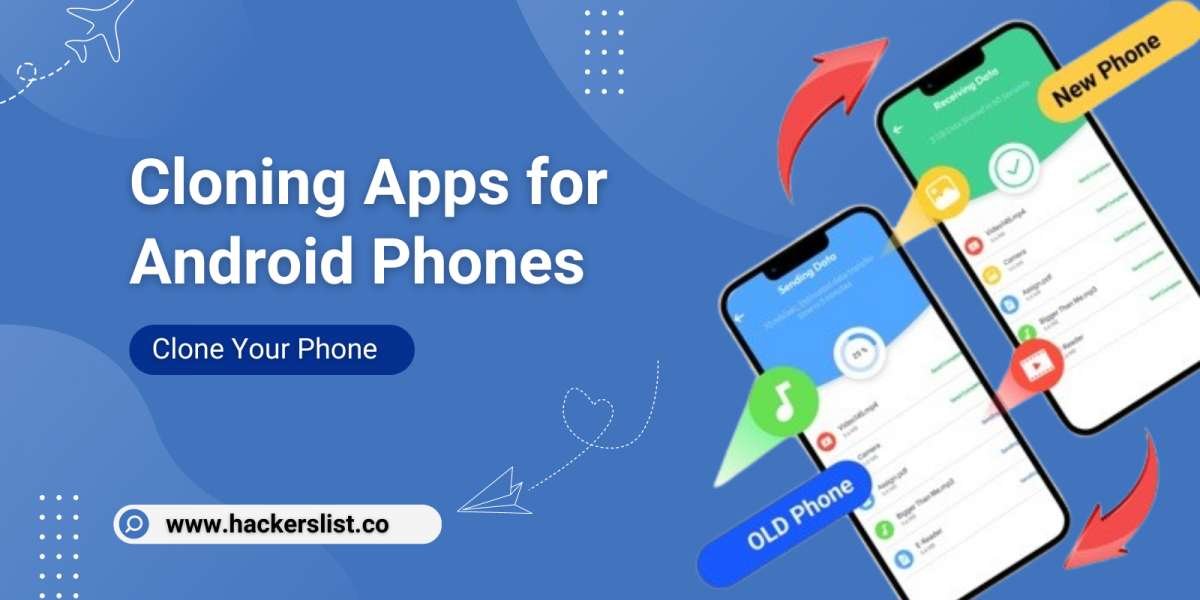In today's digital age, the capabilities of smartphones extend far beyond their primary functions of communication and entertainment. Among the various applications available, cloning apps for Android phones stand out as powerful tools that can have significant implications for privacy, security, and even investigations. This blog delves into what cloning apps are, how they work, their uses, and the ethical considerations surrounding them.
What Are Cloning Apps?
Cloning apps are software tools designed to duplicate the contents of one device onto another. For Android phones, this typically involves creating a mirror image of the data, apps, and sometimes even the operating system settings from one device to another. This process can be used for various legitimate purposes such as backing up data, migrating to a new device, or troubleshooting. However, these apps can also be used for more intrusive purposes, such as monitoring or spying on someone's phone activity without their consent.
Types of Cloning Apps
- Backup and Migration Apps : These are designed to help users transfer data from an old phone to a new one. They typically copy contacts, photos, messages, apps, and settings to ensure a seamless transition. Examples include Samsung Smart Switch and Google Backup.
- Data Recovery Apps : These are intended to recover lost or deleted data from an Android device. They often require cloning the device's data to a computer or cloud storage to restore missing files.
- Monitoring and Tracking Apps : These apps are more controversial as they can be used to monitor someone's phone activity. They can clone texts, calls, GPS locations, and even app usage. Examples include mSpy, FlexiSPY, and Spyic.
How Cloning Apps Work
Cloning apps generally work by creating a replica of the target phone's data. Here's a simplified breakdown of how they operate:
- Installation : The cloning app needs to be installed on both the source and target devices. In some cases, only the source device requires installation, with the cloned data being transferred to a third-party platform (like a computer or cloud service).
- Data Transfer : Once installed, the app will initiate the data transfer process. This involves copying all relevant data, such as text messages, call logs, contacts, photos, and app data. Some apps offer real-time synchronization, which means that any changes made on the source device will be reflected on the target device almost immediately.
- Synchronization : For ongoing monitoring, the app continues to sync data between devices. This can include GPS tracking, app usage statistics, and other sensitive information. The data is usually encrypted during transmission to ensure privacy and security.
- Access and Control : Users of cloning apps often have a dashboard or control panel where they can view and manage the cloned data. This can be accessed via a web interface or an app, depending on the service.
Uses of Cloning Apps
Personal Data Backup and Migration
Cloning apps are frequently used for backing up personal data and migrating it from one device to another. This is particularly useful when upgrading to a new phone, ensuring that all contacts, messages, and other important information are preserved and transferred without loss.
Parental Monitoring
Parents often use cloning apps to monitor their children's phone activity. This can help them keep track of their child's online behavior, app usage, and even their location. While this can be a tool for ensuring safety, it should be used with caution and in compliance with legal and ethical standards.
Employee Monitoring
Employers might use cloning apps to monitor company-issued phones. This can help ensure that employees are adhering to company policies, especially in regards to data security and usage. However, this type of monitoring should be transparent and comply with privacy laws.
Investigations
Private investigators and law enforcement may use cloning apps as part of their investigative processes. Cloning a suspect's phone can provide critical evidence, such as call records, messages, and location history, which can be crucial for solving cases.
Ethical and Legal Considerations
The use of cloning apps, especially for monitoring and spying, raises several ethical and legal concerns:
Privacy Issues
One of the primary ethical concerns is privacy. Cloning someone's phone without their consent is a significant invasion of their personal privacy. This can lead to legal repercussions, including charges of unlawful surveillance or invasion of privacy.
Legal Implications
The legality of using cloning apps varies by jurisdiction. In many places, using such apps without the consent of the device owner is illegal. Even in cases where monitoring is permitted (such as parental control), there are often strict regulations governing how the data can be used and stored.
Consent and Transparency
For cloning apps to be used ethically, all parties involved should be informed and provide their consent. This is particularly important in contexts such as employee monitoring or parental control, where clear policies and transparency are essential.
Best Practices for Using Cloning Apps
If you decide to use a cloning app, consider the following best practices to ensure ethical and legal use:
- Obtain Consent : Always seek permission from the device owner before using a cloning app. This is crucial to avoid legal and ethical issues.
- Understand the Law : Familiarize yourself with the laws and regulations in your jurisdiction regarding phone monitoring and cloning. Ensure that your use of the app complies with these laws.
- Use Reputable Apps : Choose cloning apps from reputable sources. Ensure that the app has strong security measures to protect the cloned data from unauthorized access.
- Limit Usage : Use cloning apps only for their intended purpose. Avoid using them for activities that could breach privacy or lead to legal consequences.
- Secure Data : If you're handling sensitive information, ensure that it is securely stored and protected from unauthorized access. Use encryption and secure storage methods to safeguard the data.
Conclusion
Cloning apps for Android phones offer powerful capabilities for data transfer, recovery, and monitoring. While they can provide valuable benefits in terms of data management and security, their use, especially for monitoring and spying, must be approached with caution. Adhering to ethical guidelines, obtaining proper consent, and understanding legal implications are crucial steps in using these tools responsibly.
Whether you're using a cloning app for personal backup or as part of a professional investigation, it's important to be aware of the potential impacts on privacy and legality. By using these tools responsibly and ethically, you can harness their benefits while respecting the rights and privacy of others.



